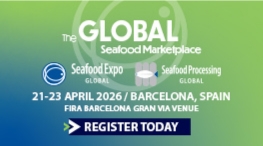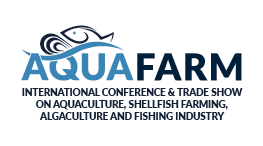Eurofish International Organisation will be at Seafood Expo Global (SEG), Barcelona, Spain, 25-27 April. Eurofish has for many years been hosting trade associations from its member countries which do not have national pavilions at the show.…
Lithuania
-
-
CountriesLithuaniaProcessing
Lithuania’s fish processing sector carries disproportionate weight in the economy
Covid-related hardships successfully overcome After growing continuously for the 10 years to 2019 the fish processing industry suffered a significant drop in output in 2020 thanks to the impact of the pandemic at different levels.… -
September / October 2022 Eurofish Magazine 5Country profiles: Albania and LithuaniaAquaculture: The state of the aquaculture feed sector –…
-
As Vice-Minister responsible for fisheries in the Ministry of Agriculture, Mr Dudutis has plenty on his plate. The impact of the pandemic on the sector, the new operational programme for 2021–2027, the ban on cod fishing, and declining quotas for some pelagic species are just a few of the issues he must contend with.
-
The fisheries sector in Lithuania can boast of a fleet split into four segments, high seas, Baltic Sea, coastal, and inland; an active processing sector producing a variety of products for domestic consumption and for export; and an aquaculture industry that stretches from traditional pond farming to the latest in recirculation aquaculture systems.
-
Although a small country (pop. 2.8m) Lithuania has a highly diverse fisheries and aquaculture sector. The fishing fleet comprises tiny vessels that are active in inland waters as well as colossal ones fishing the high seas, the aquaculture sector combines traditional pond farms producing carp and other freshwater species with ultra-modern recirculation aquaculture systems.
-
Fishermen have been catching salmon and sea trout for years in Lithuanian rivers such as the Nemunas and its tributaries. However, a significant decrease in the population of these fish in Lithuanian waters has been observed since the fifties. Intense fishing pressure, pollution, and poaching were the main causes for the dramatic decline in salmonid numbers. Natural resources were also considered a legitimate source of food, an attitude that was widespread during that period and not only in the Soviet region.
-
Located in Prienai some 100 km west of Vilnius, Islauzo Zuvis is a traditional pond farm producing a number of species of freshwater fish. The pond surface area is about 500 hectares of which about 100 ha is used for organic production.
-
A six-year-old company, JFish, has placed its bets on an exotic species, for which it is now creating a market niche among a younger clientele that is willing to experiment with new tastes.
-
Silute, a small town close to the Curonian lagoon, hosts the Fishery Enterprises Association and producer organisation, Lampetra. About 40 companies are members of the association, which was founded in 1993 and led by Siga Jakubauskiene, the chairwoman of the council.




